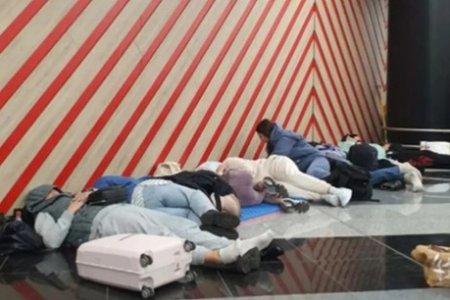
The Southern District Military Court in Rostov has passed a massive 18-months sentence against Serhiy Solodky with this the first time anything was heard of him since the 25-year-old Ukrainian was abducted as much as a year ago from occupied Kherson oblast. A civic initiative searching for the ever-mounting number of victims of Russia’s enforced disappearances says that Solodky was last seen at the central district hospital in occupied Oleshky with his disappearance reported in July 2024. Russia has made it all but impossible to verify information, and here, even the young man was earlier reported to be 33. The Memorial Support for Political Prisoners Project, however, which has designated the case as probably politically motivated, states that Solodky was born on 5 August 1999.
The sentence was announced by the Southern District Military Court in Rostov on 2 April 2025, with this passed by one ‘judge’, Oleg Valerievich Volkov. There were enough hearings to suggest that Solodky denied some, or all, of the charges. This does not, unfortunately, mean that he had not earlier been tortured into signing a supposed ‘confession’, on which the vast majority of such cases appear to be based.
It was claimed that Solodky had, from 1 August 2022 to 26 December 2023 gathered information about the deployment of Russian forces in Oleshky and passed these to a “foreign” military intelligence (that is, to Ukraine). This is a standard formulation from countless other indictments against abducted Ukrainian civilians, with the information said to be “for its use against the security of the RF.” There is an addition here, however, with the information to be used against the Russian military “in conditions of other activities with the use of weapons and military technology with the participation of the RF”.
From 1 August to 7 September 2022, Solodky was claimed to have contacted an officer from Ukraine’s Military Intelligence and had agreed to collect and pass on the above-mentioned information. From 5 October to 26 December 2023, he had, supposedly, passed on the coordinates of places where Russian weapons, military and special technology were deployed, with this being so that these military forces (illegally deployed on Ukrainian territory) could come under fire.
He was also charged with having, from 1 August 2022 through 13 February 2024, stored, moved and carried explosive devices. From 1 August 2022 through 7 February 2024, a prosecutor of the country which invaded Ukraine also asserted that the Ukrainian, living in his own native Oleshky, had “undergone training for the purpose of carrying out terrorist activities”, including the use of explosive devices.
Over the same period (up till and including 13 February 2024), Solodky was supposed to have also made attempts to blow up the car of the Russia-installed ‘head of the territorial division of the Russian police” in occupied Kherson oblast, as well as Russian soldiers. It was asserted that the failure of these had been due to circumstances not dependent on him. Russia’s FSB has, since 2014, been fabricating ‘terrorism’ or ‘Ukrainian saboteur trials’ in occupied Crimea, with the claim invariably that they had ‘thwarted’ an attack. Here, most implausibly, it is claimed that multiple attempts had been made and ‘thwarted’ over a period of almost two years, without Solodky having been detained.
The above accusations led, as they always do, to convictions, with the specific charges under Articles 205 § 2a, 205.3; 222.1 § 4 (twice); 30 § 3 and 276 (spying) of Russia’s criminal code. The young Ukrainian was sentenced to 18 years’ harsh-regime (maximum-security) imprisonment, with the first three years in a prison, the worst of Russia’s penal institutions, then a prison colony. He was also ordered to pay a fine of 600 thousand roubles. The sentence is still subject to appeal. ,
Although an entry appeared on ‘In Search of the Missing’ only in July 2024, it seems likely, given the indictment that Serhiy Solodky was abducted by the Russians as early as14 February 2024 or soon thereafter.
Solodky was accused by the aggressor state of legitimate resistance to an armed invasion and charged, in violation of international law, under Russian legislation. This is regardless of whether the young Ukrainian was engaged in resistance work or a victim of Russia’s mass enforced disappearances from occupied Ukraine.



